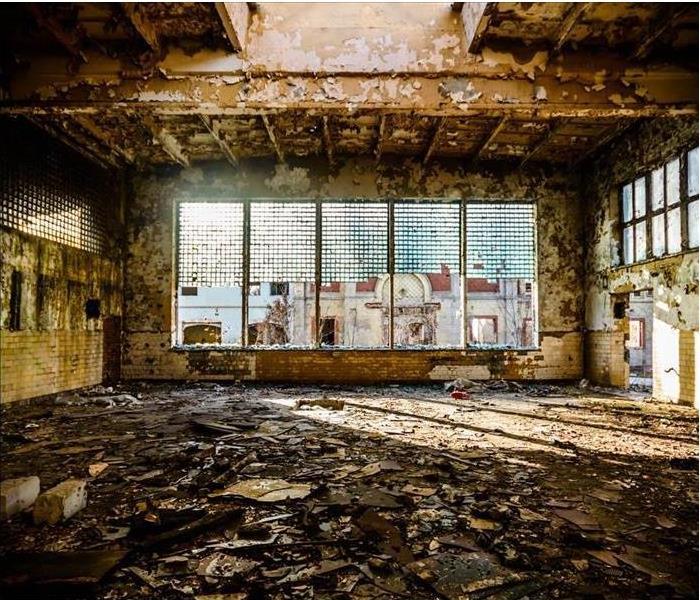6 Things You Should Know About Water Damage
8/4/2023 (Permalink)
Water damage caused by a pipe burst, flood, or storm is a common challenge for homeowners. The more you know about water damage, the better equipped you will be to deal with it if it occurs in your home.
What You Should Know About Flooding and Other Water Damage
About one in 50 homeowners file a claim related to freezing or water damage every year. These are some of the most important facts to know about this common problem.
- The Longer You Wait, the More Damage You Will Have
It is critical to dry out wet property within 24 to 48 hours. After this point, mold may begin to grow. Wood may rot. Water from clean sources, such as a water line break, may become contaminated. Quickly and completely drying property is the best way to reduce the total amount of damage done. If you are unable to dry out your property yourself, you may want to contact a water remediation company in Pueblo, CO, to assist you.
- Water Damage Is Often Avoidable
You can't control the weather, but you can often take steps to mitigate potential flood damage by installing a flood control system in your home, keeping your roof and windows up-to-date and in good repair, and making changes to your landscaping. Additionally, you can avoid water damage from broken plumbing or appliances with regular inspections and maintenance.
- Some Water Damaged Property Can Be Restored
Some water-damaged items, such as food, carpet pads, drywall, and other difficult-to-dry or decontaminate items need to be replaced. However, other materials can be dried out and restored if you act quickly.
- It May Be Covered By Insurance
Most homeowners' policies cover water damage from a sudden and accidental discharge, such as that from a pipe burst. Water that enters through an opening in the roof caused by wind damage may also be covered. Flood damage is usually excluded from homeowners' policies, but may be covered if you have a separate flood policy.
- Some Types of Water Damage Are Not Do-It-Yourself Projects
A small amount of water from a supply line leak or a washing machine overflow may be safe to clean up on your own. However, water from flooding or that contains sewage or other contaminants requires protective gear and training that most homeowners do not have.
- Avoid Walking or Driving in Floodwater
Walking or driving in floodwater is hazardous for multiple reasons. First, it can be difficult to judge how deep floodwater is or how swiftly it is moving. People and vehicles can easily be swept away by water they thought was safe. Second, floodwater may contain sewage and other contaminants. Third, the storms that cause flooding often result in downed power lines, which can make walking through floodwater an electrocution hazard. Similarly, water that covers electrical outlets in a home may not be safe.
Most homeowners will encounter some type of water damage. Educating yourself on facts about water damage from a pipe burst or other source can help you stay safe and minimize property damage.





 24/7 Emergency Service
24/7 Emergency Service
